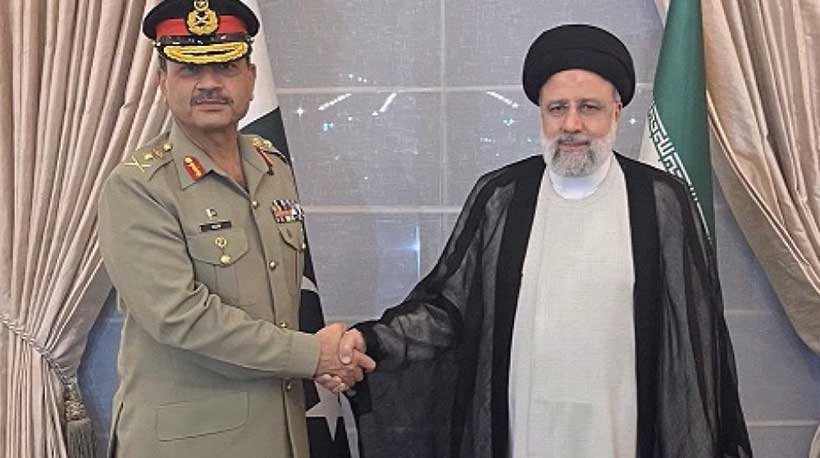The leaders of both sides have been alerted to the need to expand their bilateral contact in multiple spheres by signing multiple Memorandums of Understanding (MoUs) during this three-day visit. The agreement to construct the Rimdan-Gabd Joint Free-Special Zone was signed during this visit by the advisor to the president and secretary of Iran’s Supreme Council of Free Trade Industrial and Special Economic Zones, as well as the secretary of Pakistan’s Secretary Board of Investment.
The Iranian Ministry of Road and Urban Development and the Pakistani Ministry of Science and Technology have also signed the Memorandum of Understanding on the Mutual Recognition of the Standards of Pakistan and Iran. To investigate new possibilities for bilateral collaboration, other ministries from both governments have signed a number of other Memorandums of Understanding. Eight deals spanning a wide range of topics, including trade, research, technology, agriculture, health, culture, and judicial affairs, have been reached on the first day of the visit.
Given the evolving regional and global world order and the numerous non-traditional dangers to the international system, such terrorism, this visit is more significant for both governments. The state leaders of Iran and Pakistan have demonstrated their willingness to continue actively tackling the problems of terrorism and organized crime, despite having a notable track record of counterterrorism measures.
By making their respective business communities more integrated, Iran and Pakistan may be able to increase the volume of trade they now engage in. This might be accomplished by focusing on the main security issues. Thus, developing a cooperative, all-encompassing approach to address the threat posed by non-state actors will ensure the growth of trade linkages between the two-sided business groups. By strengthening the already-existing societal linkages between Pakistan and Iran on a cultural and religious level, it will further improve the likelihood of foreign direct investment in both governments.
One plausible explanation for the two-sided leaders’ flourishing trading links could be the enhanced interpersonal relationships in the areas directly adjacent to their shared borders. In order to protect their geographical linkages from misinterpretation on a strategic, political, and diplomatic level, the formal state authorities of both states will be able to handle the shared security challenges through a formal consensus-based framework. observing the continuous, multifaceted political dialogue and mutual diplomatic assistance between the two states.
One element that might encourage the leaders of Tehran, Islamabad, and Beijing to actively participate in and support China’s developing international trade strategies is the growing commercial ties between these three states. The Chinese influence on Pakistan’s and Iran’s current trade plans is a significant factor in enabling Islamabad and Tehran to take advantage of their marine potential without inciting serious mistrust toward one another, particularly when it comes to port infrastructure.
Pakistan’s involvement in establishing a geographical link between Iran and China for business purposes also stems from Islamabad’s growing dependence on the geo-economic aspects of the global economy. With China and Iran as neighbors, Pakistan’s trade relations are growing, which may help Islamabad solidify its standing in the BRICS framework, a global organization that aims to include members from other parts of the world.
The leaders of Iran and Pakistan could not overlook the challenges facing the Muslim world, particularly the concerns of Palestine and Kashmir, which call for the active involvement of Islamic nations, in addition to paying particular attention to the changing power dynamics of the global geoeconomic scene. Pakistan and Iran could effectively contribute to this non-traditional approach by taking a more practical and less theoretical stance in light of the highly secure climate in which the Muslim world finds itself.
The previously stated features of the bilateral relations between Iran and Pakistan make it easy to conclude that the leaders of both countries remain dedicated to maintaining their bilateral cooperation in their respective foreign policy models, even in the face of possible obstacles to their shared goal of enhanced cooperation.
The recent visit will considerably advance Pakistan-Iran cooperation to the targeted levels, as demonstrated by the limited history of multileveled collaboration between the two states and the unmistakable presence of cultural, historical, and religious links in their bilateral exchanges.
By examining world politics beyond their predetermined conceptions of international systems, the leaders of both states may find it easier to change the customary patterns of their foreign relations if state-level political communication between them has improved.
